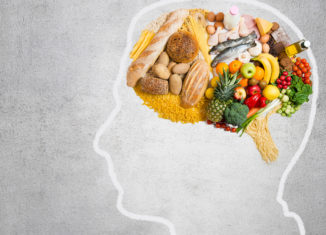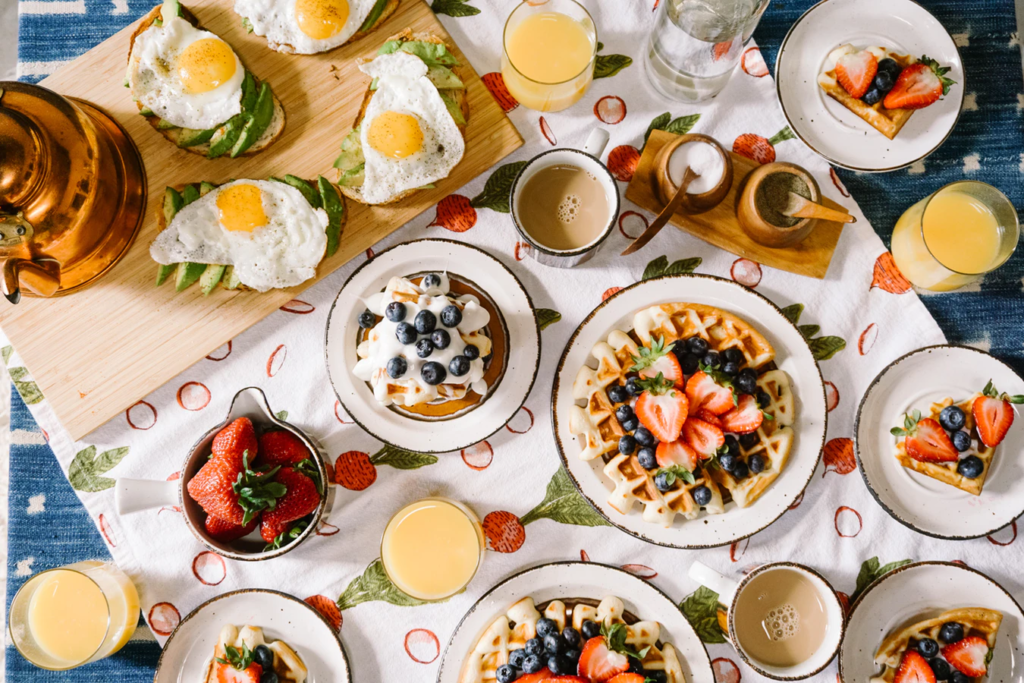
Exams are one of the most important parts of a student’s life. At the same time, they are the hardest part of it. Stress, anxiety, sleepless nights, and the constant feeling that you would not pass – these are the nearly inevitable companions at the time of exam preparation for most of us. All of the fears and stress naturally consume loads of energy. Ironically, the more we study (depriving ourselves of sleep time and almost any rest), the more it gets harder to study. Fortunately, there is a way of regaining all the amounts of energy we’re loosing during studying for the exam. Food is the answer! But what is important is the food to really give you all the needed resources for such an energy-consuming activity as studying. So, what is the best food to eat during the exam preparation time? Here’re some tips prepared by the EssayShark team for you:
Balanced Approach

First of all, let’s talk about balance. Eating meals with balanced nutrient elements is crucially important for your health, and during times of continued stress (such as the exams) it becomes even more important. The balanced meal has the ingredients that usually fall under one of the three main categories – energy, growth, and repair. Depending on what you require most during exams, you can develop your own balance. For example, for a more energy – fueled day, add more products that contain carbohydrates, such as rice, pasta, or potatoes. If you feel like you need to regain your strengths or to recover from the studying process, then protein is for you! You can find this material in red meat, eggs, milk, and similar products. In other words, tasty dinner of pasta bolognese would make you all set up for studying hard to pass your exams!
Timing
While your food should be carefully balanced, there is also time for food to be consumed to have the most effect! Considering the losses you face during the time of exam preparation, it is best to have meals at least three times a day – breakfast, dinner, and supper. Many people sacrifice their breakfast time to be able to immerse into exam preparations even earlier – don’t repeat their mistakes.
Breakfast is the most important meal of your day, as it defines how will you spend that day. Therefore, at that time, it’s best to have something light yet nutritious. Cereals would be a good choice, but having something, including fruits and bread, would be even better!
Dinner is the time to bring something serious on the table! In the middle of your day, you need enough energy to refill your losses and charge yourself for the evening. So, don’t be afraid to have something high in calories for dinner. Steak with potatoes or fish with rice may be your choice. However, remember to stay healthy! Foods, high in fats are harder to proceed by the organism, and this process lowers the ability of your brain to concentrate on studying.
Supper, on the other hand, is usually the lightest meal of all. As you are going to sleep (you won’t be spending another night on coffee and books, will you?), it is worth having something that will leave you full enough to not think about food as you go to sleep but to wake up with the feeling of hunger. Yogurt would be a great option. However, remember to avoid products that would harm your sleep! While chocolate and nuts are great for your brain, they’re definitely not a great food for the supper as they will make you true agitated.
Brain – boosting foods
We’ve already talked a lot about the time and balance that should be in your exam diet, but what about the exact foods? What products will make your brain work hard enough to pass all the exams? It may sound quite obvious, but fruits are something you should really concentrate on when you need to… well, concentrate! Fruits, such as strawberries or bananas, are full of various nutrients that “fuel” your brain. Same as fruits, vegetables also contain a high amount of vitamins and nutrients. In other words, a vegetable salad, stuffed with olive oil (a healthy source of fats) would be a great choice is you got hunger from studying hard!
On the other hand, if you are tired of fruits and vegetables, there is always chicken meat to back you up! Actually, poultry and eggs is generally great food for your brain. However, in the case of exams, it’s better to stay away from turkey, as it contains certain chemicals that can make you feel sleepy. So, stick to the chicken! There are thousands of great dishes that can be prepared with it, from roasted chicken to the chicken soup – a go-to meal to restore your health!
Drinks
Finally, let’s talk about proper drinking. And by drinking, I mean not just alcohol, which is, by the way, recommended in small doses in order to improve your memory skills (but obviously only if you have reached legal drinking age). Drinking enough water to keep yourself refreshed goes without saying. But what about tea and coffee? These drinks are the most common stimulators that people have been using for centuries. Inadequate amounts, coffee or tea (especially green) without a lot of sugar can make you much more concentrated and improve your learning skills as well. As with the foods we have already discussed the key principle with drinks is a balance. A cup of coffee can be a great addition to your breakfast and tea is a nice drink to finish your dinner with. Just don’t become a coffeeholic and don’t use it to stay away from sleeping!
Fizzy drinks, on the other hand, are best to be avoided. These drinks fall under the category of “brain-blockers” and won’t have a great effect on your learning skills. What is more, they create a false feeling of the “fullness” of your stomach and may distract you from your balanced diet. Save those Coke and Pepsi for the celebration of the passing of your exam!
Conclusion
I hope that these tips above would help you. Eating is an important part of our everyday life, and during exams, it becomes even more important. A greatly balanced meal composed of brain-boosting foods would be a basis for effective and successful exam studies. It would make you feel healthier, more concentrated an even powerful. Just a little thinking about what, how, and when do you eat would make a great difference for you. So, follow the tips above, and I wish you luck with your exams!
